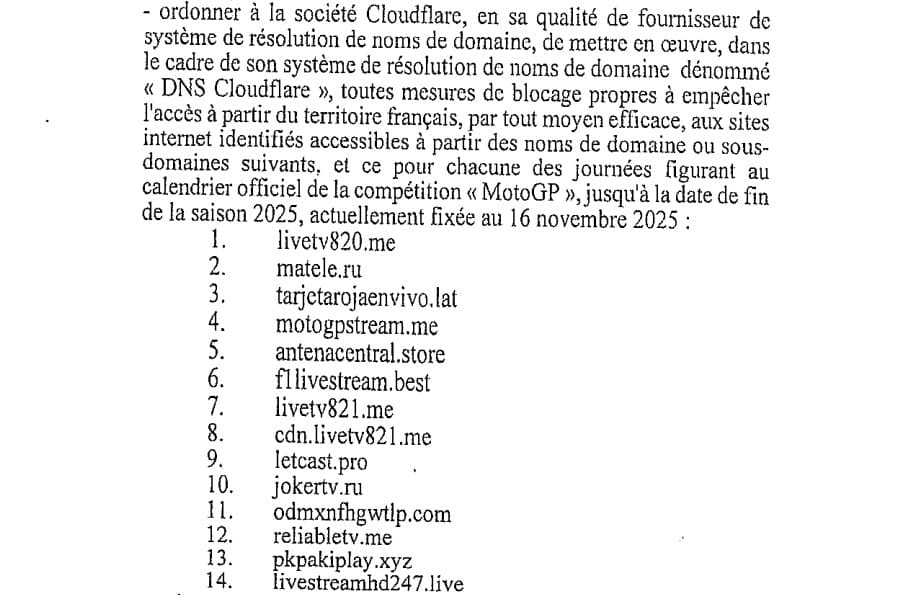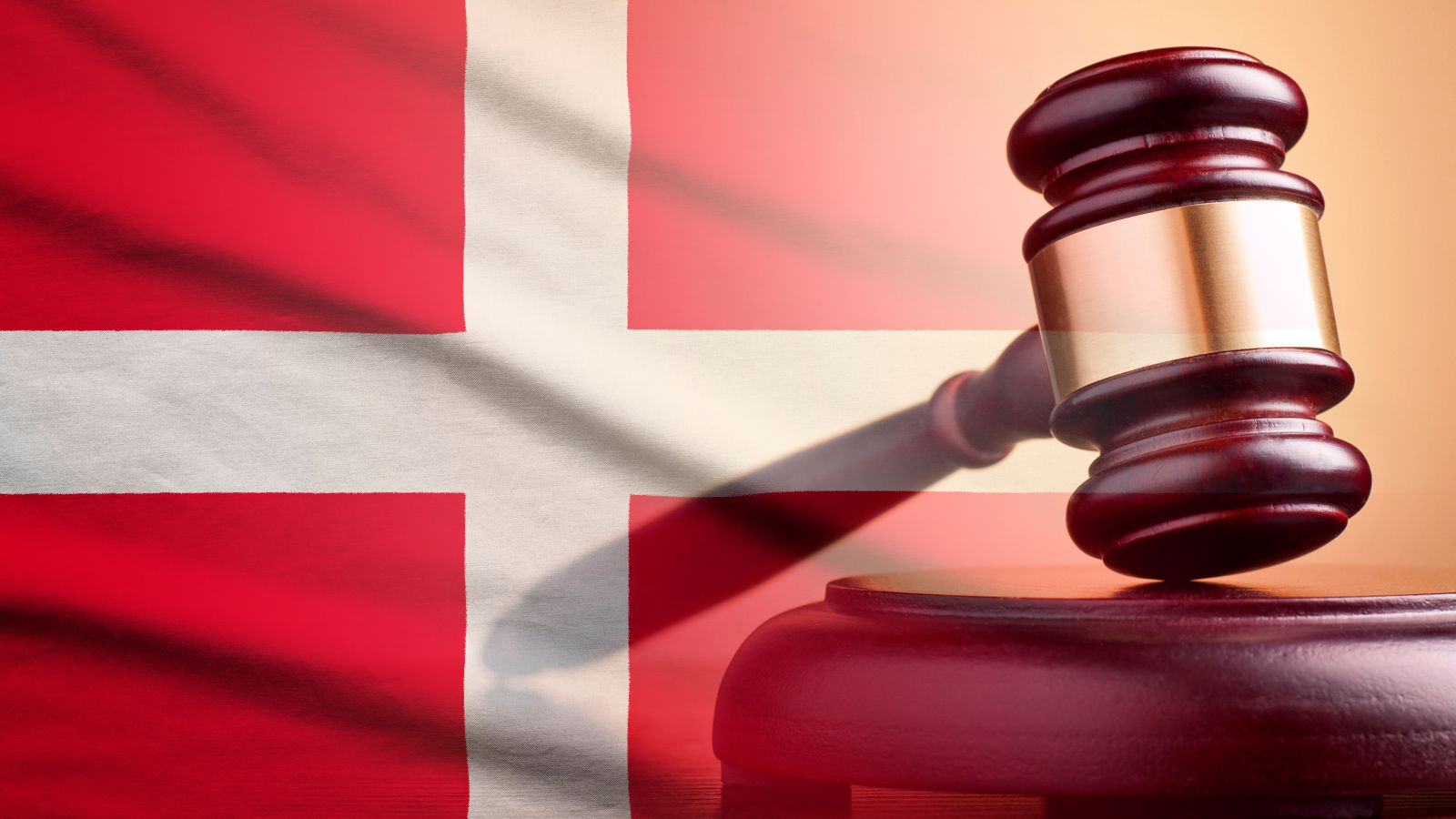
Cloudflare Asked to Block MotoGP Piracy Streaming Websites by French Court
- A dynamic blocking order hangs over Cloudflare due to a recent ruling stemming from a Canal+ request.
- This ruling extends the scope to Cloudflare’s suite of services, including DNS, CDN, and reverse proxy.
- Cloudflare must adopt technical measures against additional domains or face substantial financial penalties.
Cloudflare was required to implement “dynamic blocking” measures against sites illegally streaming MotoGP by a recent ruling by the Paris Judicial Tribunal as a result of a Canal+ (Société d’Edition de Canal Plus) request.
The tribunal’s order mandates the blocking of 14 pirate domain names, along with a provision for dynamic updates that address future infringing sites identified by French media regulator ARCOM.
The ruling empowers SECP to flag additional infringing sites to ARCOM, thereby expanding the scope of enforcement. Cloudflare’s obligations will last through the 2025 MotoGP season, ending November 16, with non-compliance incurring a daily fine of €5,000 per site for any new “pirate” site that appears.
This new push in anti-piracy enforcement is legally based on Article L. 333-10 of the French Sports Code, which allows rights holders to demand court orders against entities capable of deterring “serious and repeated” sports piracy.
While such orders traditionally targeted internet service providers (ISPs), this ruling extends the scope to Cloudflare’s suite of services, but the company argues that strict policing obligations are not appropriat for its DNS, CDN, and reverse proxy services.
Cloudflare contended that its role as a DNS resolver and content delivery network is passive and does not involve the direct transmission of infringing content. It argued that such technical distinctions exempt it from the legal expectations of intermediaries.
Furthermore, Cloudflare questioned the proportionality and effectiveness of the measures, citing potential bypassing via VPNs or alternative DNS resolvers, as well as difficulty in limiting enforcement to France to avoid unintended global impacts.
However, the Paris court refuted these defenses, emphasizing that intermediaries like Cloudflare play a key role in enabling access to infringing content. It rejected claims of ineffectiveness, stating that even partial disruption contributes to the fight against piracy.
The court thus upheld the necessity of the blocking measures, dismissing Cloudflare’s arguments entirely.
With DNS resolvers and CDNs increasingly targeted in similar injunctions elsewhere, this precedent hints at a shifting landscape in anti-piracy enforcement. Notably, a proposed U.S. site-blocking bill suggests the involvement of DNS resolvers in curbing copyright infringement.













